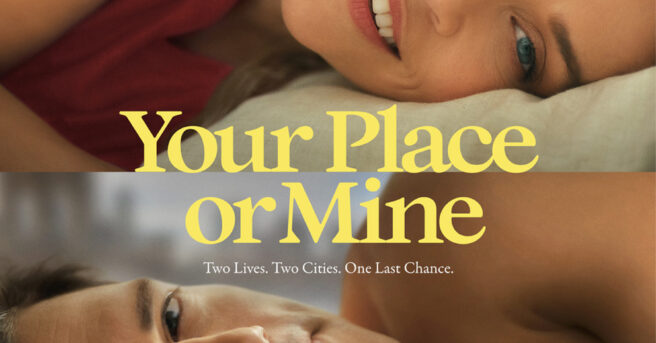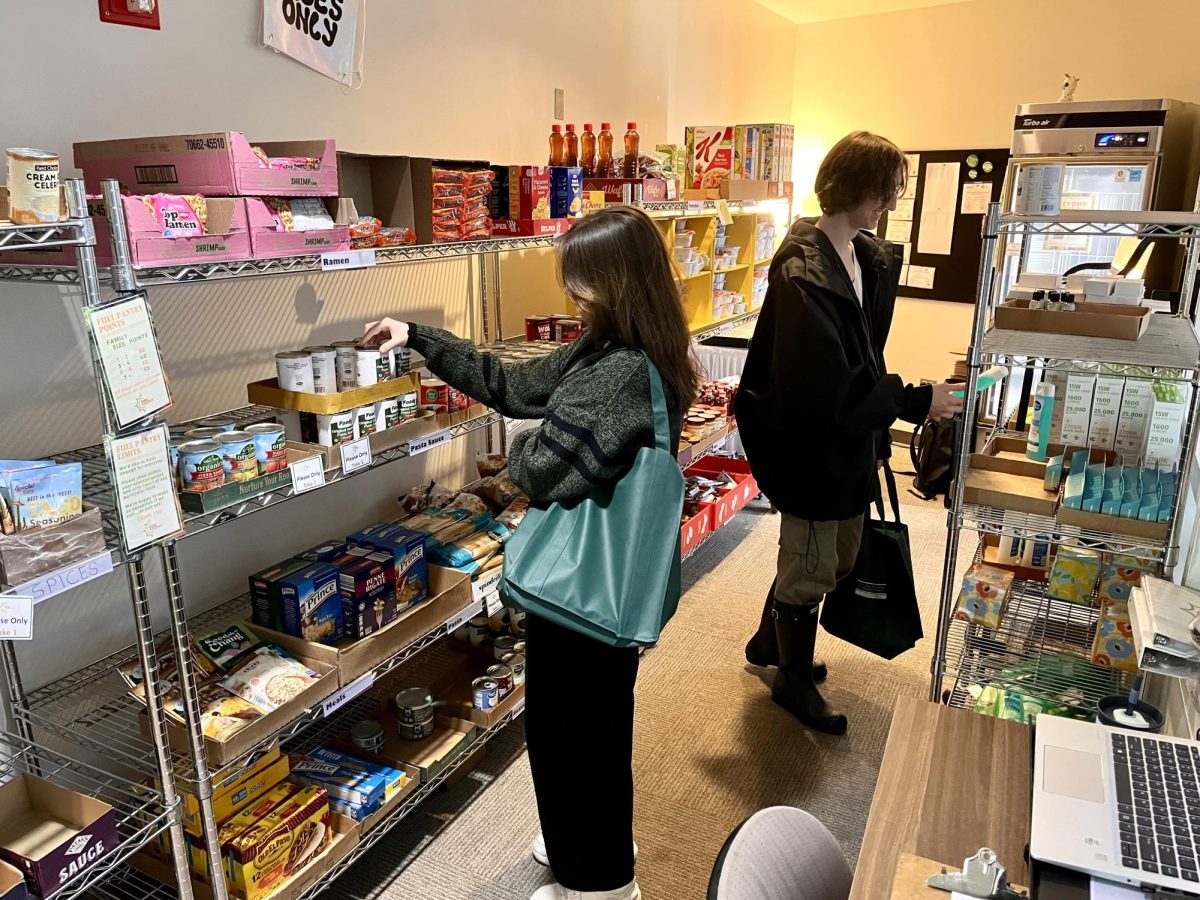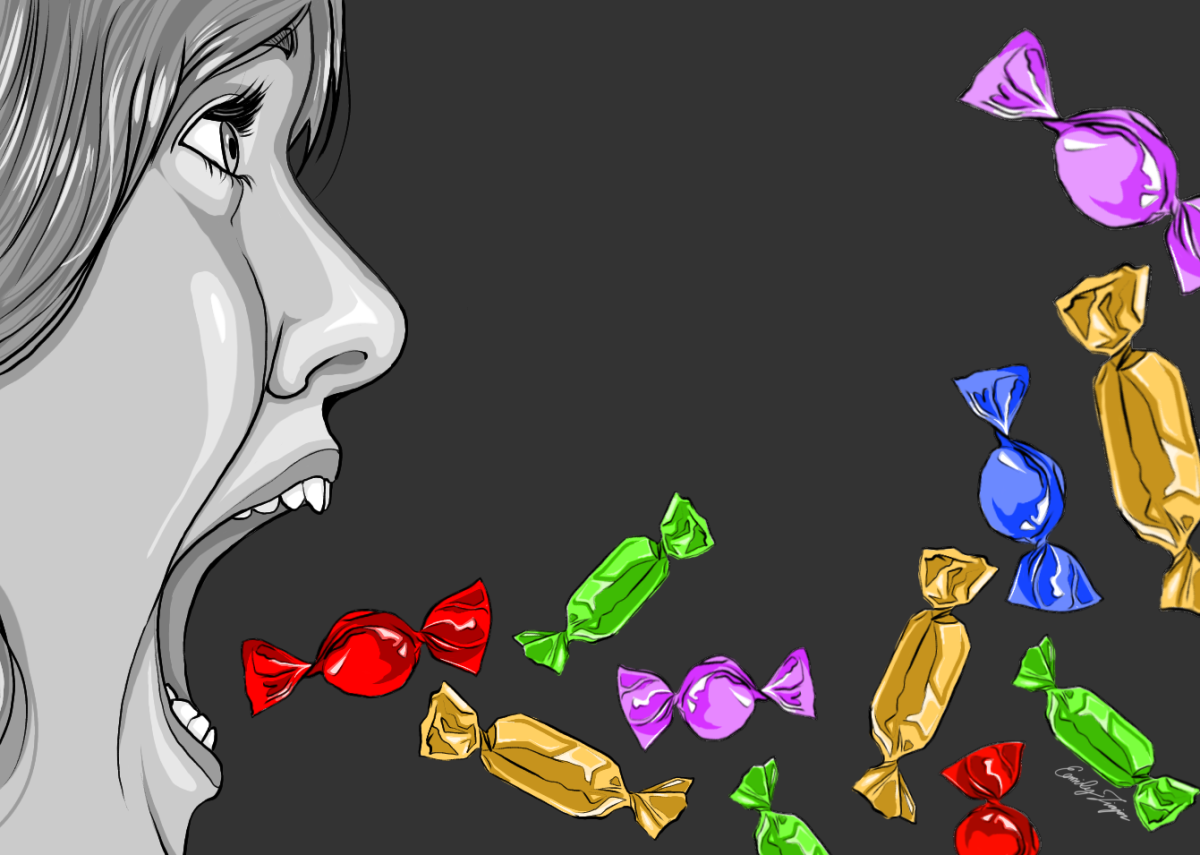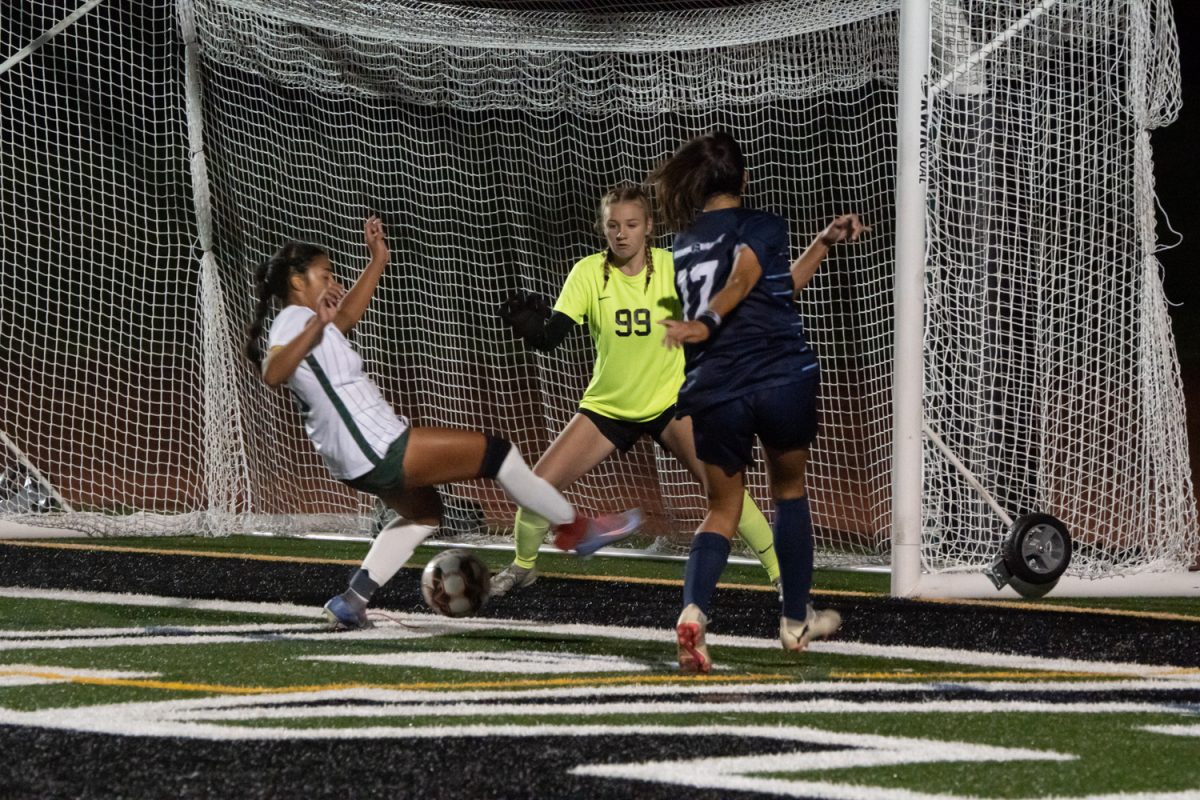“Your Place or Mine”: A Gimmicky Romcom
“Your Place or Mine” is a dull, friendly and at-times funny watch.
February 27, 2023
In the opening scene, we see Debbie and Peter, played by Reese Witherspoon and Ashton Kutcher, respectively. The movie’s captioning provides some humor to the scene, as well as the ridiculousness of pretending that Witherspoon and Kutcher are a young couple, in their twenties, first discovering their love.
This chemistry is brought to a halt when, after transitioning 20 years later and through a clever editing trick, we learn that Debbie and Peter don’t end up together. Why not? That’s the premise of the movie.
But, the two have remained good friends for these 20 years, talking to each other often and sharing their life updates with a chemistry that suggests they are more than what they call themselves. While on a Zoom call to talk about Peter’s birthday, we meet Debbie’s son Jack (Wesley Kimmel), an adolescent who is well aware of how over-parented he is.
Debbie is in the midst of getting her degree, one in accounting so she can find a more stable living, which doesn’t have an obvious motivation given the lofty life she lives in L.A. with Jack. Nonetheless, we are treated to a contrivance that leads to Peter having to babysit Jack in L.A. while Debbie is away in New York to complete her degree.
The writing was solid, with humor that sometimes is overbearing and didn’t fit the tone. For instance, Peter accidentally flings his phone into a vase after being enraged, which surprises Jack and leads him to say, “Use your words.” It’s a funny exchange, but it doesn’t allow for the development of what Peter’s feeling. If he’s upset – in this context, jealous and envious, that should be allowed to play out. Otherwise, the character is missing depth.
At other times in the movie, the humor is well placed, including when Minka (Zoe Chao), Peter’s ex and Debbie’s new-found N.Y.C. bestie, over-elegantly presses a button to turn off the ear-piercing music that Debbie accidentally started in Peter’s apartment. The joke plays well off of the assumed chaos of Debbie not knowing how to turn the music off, and gives us a view into Minka’s character: elegant and blunt.
Additionally, the dialogue felt natural at times, sounding like a back-and-forth I might overhear in public, including the aforementioned opening scene with Debbie and Peter on a Zoom call together.
Kutcher’s acting is subpar. In one scene he was especially robotic when he shouldn’t have been, where he tells Debbie all the times when she’s been there for him as a friend to then tell her that he’ll take care of Jack for the week, as he should. During the final shot of this scene, he’s smiling as he tells Debbie that she “needs help.” The note is supposed to be sincere, genuine and serious, but Kutcher gives it none of that weight. Meanwhile, Witherspoon does. Her expression is tender, heartfelt. You can see it in her eyes; however, in Kutcher’s, the believability isn’t there.
Kimmel’s performance is at times acceptable when delivering comedic lines, but at other times his forced expression suggests a lack of meaning behind what he’s saying. For example, in the particularly important event of him appealing to his former-friends by taking them to a hockey game, his expression reads blankly as he’s yet again rejected by the clique they have formed away from him. In another moment, when excited about seeing “Alien,” a horror movie, which is a genre he has had little exposure to due to his helicopter mom, he seems laid back and nonchalant about it. Nothing, to me, suggests a depth to him as much as being over-protected and having little exposure to the real world. But, the way he acts suggests the opposite.
Witherspoon gives an emotionally diverse performance, ranging from the highly on-the-nose and humorous Zoom exchange with Peter near the beginning of the movie to her having a serious, heartfelt conversation with Theo, her N.Y. love interest played by Jesse Williams. In the former, she plays with Kutcher sarcastically, and in the latter she must admit her true feelings about the men in her life. This gives greater meaning to her character arc, which is one of the few that satisfyingly came to fruition in this film. The others, as in Kutcher’s and Kimmel’s, had little substance.
The movie’s editing, done by Chris Peterson, was too tongue-in-cheek for me, especially at the very beginning and end of the movie. It started out with the caption joking about the time in which the main characters, Debbie and Peter, met, and ended with some captions about what those main characters, as well as Jack have been up to since months had passed since the shot before then. Neither time was the caption funny, and it reminded me of how shallow the movie’s character was. Otherwise, the transitions worked well, and character’s expressions were shown or switched to at appropriate times, giving it an overall flow. However, this flow was interrupted at times by the film’s often overbearing music.
The music choice, in combination with the shiny cinematography, was too polished. This was the case when Debbie was on campus, studying in class, giving me the impression that I was watching a music video, that is, the lighting was overpowering and the scenery wasn’t immersive. In other words, it wasn’t believable. Nor was the café Peter and Jack went to, which was akin to an advertisement for nothing in particular on screen. To that point, I couldn’t tell what the characters were eating.
The idea of what Peter and Jack were eating at the café being unrecognizable, as well as other, related ideas in the movie are important to me, because they could have been fleshed out more for the sake of the film. It starts off with Debbie making casseroles for Jack to eat while she’s away. Then, once Peter is aware of this and at Debbie’s house, he throws the casseroles away, instead choosing to take Jack out to eat. By focusing on how gross the casseroles are by showing them to the viewer, something the film could’ve done, it would’ve emphasized the punchline of Peter throwing them away and instead going out. To follow this up, by having a close up of what Peter and Jack are eating at the cafe, as well as showing them enjoying it, the joke would be even funnier. But, this isn’t done. Instead, as is the case for multiple occasions during the film’s runtime, we are told something instead of being shown it. Jack is upset in one scene, so he says it instead of expressing it.
I enjoyed the movie besides these gripes. It wasn’t the best viewing experience, definitely a gimmicky one, but it’s worth watching if you’re looking for a run-of-the-mill romcom. And it’s currently streaming on Netflix.




















